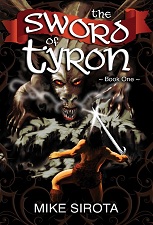I’ve worked with countless writers over the decades as a coach and editor, and interacting with the majority of them has been a joy for me. But with some, not so much. The difference? The “not-so-muchers” don’t take critiquing well, are defensive, and some actually believe they’re good enough to be the next Stephen King or Sue Grafton and earn King-esque or Grafton-esque kinds of megabucks when their gems are published. Fortunately, I pick and choose my writers carefully these days in my “semi-retirement,” so I don’t have to deal with the “not-so-muchers” anymore.
In thinking back on the talented and successful writers with whom I’ve worked, I see that there is one element binding them all: PASSION. They love the craft, they are passionate about working their butts off to improve their writing, they are open to input—and they will not stop writing no matter how much life gets in the way.
Recently I received a query from a writer on the east coast. He had a thriller that I thought most promising, so I agreed to work with him. At one point he wrote to say that if we were to continue working together beyond the initial evaluation of his manuscript, he wanted me to know that the process might be slow, as he was enduring multiple physical issues, including glaucoma, which threatened to slow him down. (He’d written most of the book while dealing with his health.) I told him that would not be a problem from my standpoint, and I reiterated this after I read his story, which  needed a good deal of work but showed great potential. A couple of weeks after I returned his manuscript he wrote again to say that he received it but would probably never get around to open the mailer. Since I’d spoken to him he had lost sight in one eye, and the other was going. He actually apologized to ME for not being able to go ahead with his project. It broke my heart to read this.
needed a good deal of work but showed great potential. A couple of weeks after I returned his manuscript he wrote again to say that he received it but would probably never get around to open the mailer. Since I’d spoken to him he had lost sight in one eye, and the other was going. He actually apologized to ME for not being able to go ahead with his project. It broke my heart to read this.
PASSION.
Years ago I worked on a promising science fiction story by a writer in the Midwest. Her e-mails to me were crisp and concise, her hard copy submissions perfectly laid out structurally, grammatically, and all other ways, and our phone chats were pleasant. After we got to know each other a bit better, she told me that she was a quadriplegic, that she did all of her work with voice-activated software, kind of crummy for its time. Writing kept her going, she said.
PASSION.
Two of my most successful and multi-published writers were poor as church mice (how poor IS a church mouse, really?) when I began the journey with them. One of them, a single dad raising two kids, drove a beat-up old pickup truck to his telemarketing job to earn a few bucks, and when his pickup was stolen he rode a bicycle to work. (Our read-critique group chipped in and bought him another truck.) He went on to publish with houses such as St. Martin’s Press and Simon & Schuster.
with houses such as St. Martin’s Press and Simon & Schuster.
PASSION.
I’ve written much about my dear friend, mystery writer Jeff Sherratt, who passed away last summer. Jeff was terminally ill, yet on the day before he died we were bouncing writing-related e-mails back and forth, and a few hours before he died he was on the phone with his graphic artist discussing the cover of his next novel.
PASSION.
In a long-ago post I wrote about the many classes and workshops that I’ve given through the years, and I mentioned Sirota’s Rules of Writing: 1) Keep Your Day Job; 2) Write Because You Love Writing. Sure, it’s great to see the gazillion-dollar checks rolling in to authors such as J.K. Rowling. But if that is your motivation for writing, you will more than likely fail.
Speaking of Rowling, she was a poor single mom “on the dole” in England, struggling to get by, writing her Harry Potter stories on napkins in coffee houses. What kept her going?
PASSION.
Swords and Specters: my sword & sorcery novel, The Sword of Tyron, is now  out in eBook and paperback under my Atoris Press imprint. For two days, November 15th and 16th, you can download it for free on Amazon Kindle. Enjoy!
out in eBook and paperback under my Atoris Press imprint. For two days, November 15th and 16th, you can download it for free on Amazon Kindle. Enjoy!

The examples you’ve mentioned, Mike, are so inspiring. It can be tough to balance all the crazy things that life throws at you and still find time to write. But reading this, makes me realize I need to push harder. If someone in those situations can make it work, so can I.
Thanks for sharing this!
Much appreciated, Jennifer. Best of luck with your writing.
Fantastic post! Like Jennifer, I’m inspired. The writing world is lucky to have you.
When it comes to writing, you ALWAYS seem inspired! 🙂
Oh, yeah, leaving it to you to write something like this…right when I’ve been feeling sorry for myself because life has been piling things up on me lately.
a) Not quadriplegic. Check.
b) Not blind. Check.
c) Not dead. Check.
So the moral of this story is quit whining and get my nose back on the grindstone.
Fine. Be that way. 🙂
Humbling, no? Writers never cease to amaze.